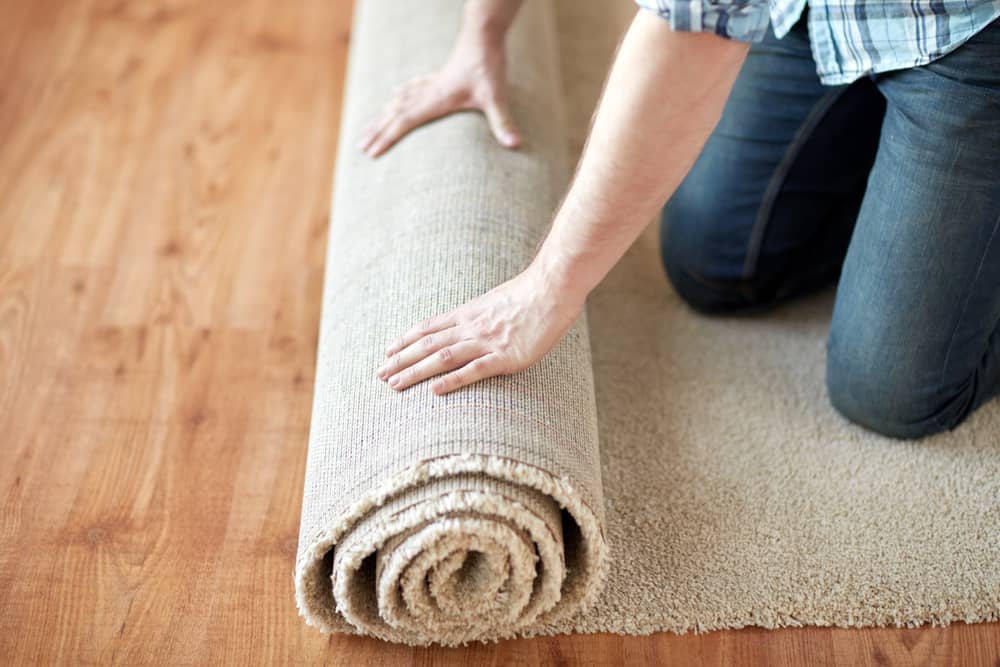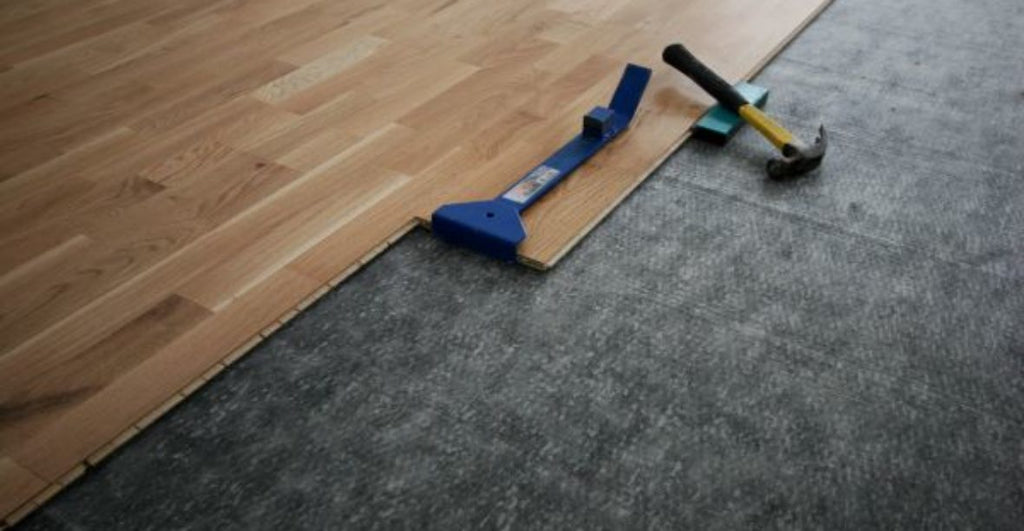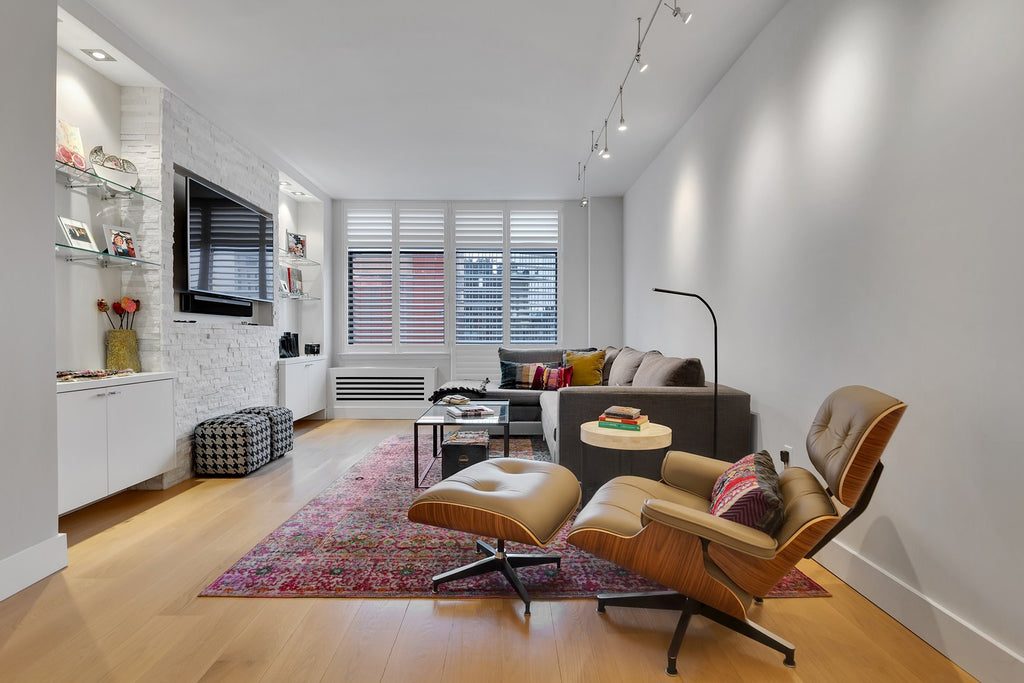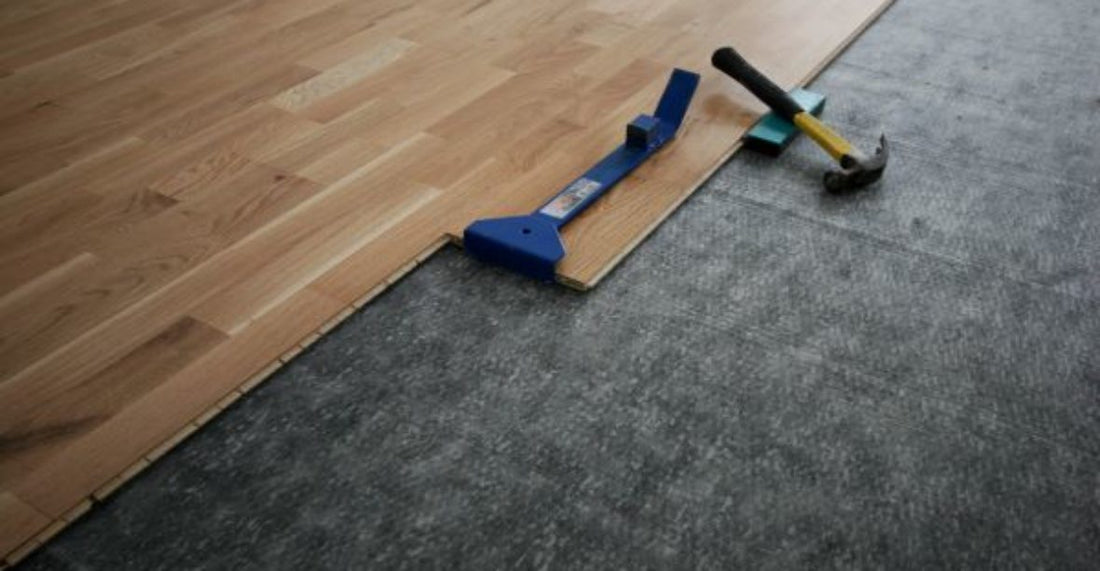Soundproof flooring is a game-changer for people living in apartments or multi-story homes. It offers a host of benefits that can make a significant and positive difference in the quality of life, improving the ambiance and productivity of living and working environments. The primary benefit of installing soundproof flooring is that it significantly reduces noise transmission (airborne and impact) between floors or rooms. This means that it helps prevent sound disturbances, offering the tranquility and calm that people need to rest, focus on work, or engage in daily activities without distracting noise. In this article, we'll explore the incredible benefits of soundproof flooring that can make a massive difference in homes, apartments, and offices.
Guest post from our friend, Carlos!
The Benefits of Soundproof Flooring

As the world grows increasingly noisy with the constant hum of traffic, the din of construction work, and the lively sounds of our fellow neighbors, soundproof flooring has emerged as a savior for many homeowners. Soundproof flooring can provide numerous benefits to homes in terms of acoustic insulation and insulation against temperature changes. Here, we’ll discuss some of the benefits of soundproof flooring.
1. Reduction of noise pollution
One of the most significant advantages of soundproof flooring is that it drastically reduces the amount of noise generated inside your home. With soundproof flooring, you can significantly cut down the amount of noise coming from outside or the floor below. Soundproof flooring helps homeowners enjoy a quiet and peaceful environment in their homes, free from the noisy distractions that can be so irritating.
2. Improved acoustic qualities of your home
Soundproof flooring is designed in such a way that it offers excellent acoustic insulation, improving the overall sound quality of your home. Without soundproof flooring, sound waves produced by footsteps, television, and music bounce around the room, creating a muffled and unpleasant echo. However, with soundproof flooring, these sound waves are absorbed, resulting in a cleaner, sharper sound.
3. Increased Privacy
Soundproof flooring can effectively provide you with privacy within the confines of your home. With soundproof flooring, you no longer have to worry about the noise you create while walking around your home or using home appliances like the dishwasher or washing machine.
4. Better energy efficiency
Soundproof flooring not only provides acoustic insulation but also provides insulation against temperature changes, making your home more energy-efficient. By preventing drafts, heat loss, and heat penetration, soundproof flooring can help you save considerably on energy bills by reducing the need for heating and cooling.
5. Improved property value
Soundproofing your home with soundproof flooring can also boost the value of your home. Home buyers are always on the lookout for homes that are quiet and peaceful, and by installing soundproof flooring, you'll set your property apart from similar homes in your area and gain a competitive edge in the market.
In conclusion, soundproof flooring offers a wide range of benefits for homeowners looking to improve the comfort and quality of living in their homes. By reducing noise pollution while simultaneously providing insulation against temperature changes, soundproof flooring is the ultimate solution to create a peaceful and energy-efficient home.
Soundproofing Floors: Tips and Tricks

Soundproofing can be used in more than just having aspiring drummers as neighbors, as it prevents noise from leaving or entering a space. Soundproofing your floors depends on what type of noise you're trying to eliminate: impact noise, airborne noise, or both. The main source of impact noise is anything that contacts your floor, such as footsteps, furniture moving or dropping, or that cast-iron skillet passed down through the generations. The impact insulation class (IIC) of flooring is a measure of how well it protects against impact noise.
Noise that occurs through the air, such as music, traffic, people talking or a barking corgi in need of a collar, can be described as airborne or transmission noise. This type of sound is absorbed differently by different flooring materials based on their Noise Reduction Coefficients (NRCs). As you are now more familiar with what soundproof floors are trying to do, you should start thinking about where you might need them.
Map Out Your House
The best way to determine which floors require the most soundproofing is to map out your house to see what is beside, above, and below each room. In most homes, kids' bedrooms are the rooms that need soundproof floors. When you have to get up early for work in the morning, that pitter-patter of little feet sounds nice in a poem, but not so much when you have to get up early for work. Aside from that, if you enjoy the time you get each night between their bedtime and your own, you won't want to wake them up with any noise.
Check Your Rooms
Be sure to consider which rooms in your home produce the most noise, aside from your bedrooms. If you're a chef, are you constantly clanging pots and pans? Would you like to watch movies in a home theater with surround sound? Is there a recording studio where you like to lay down tracks? Following your review of your own noise production, you can also consider the noise generated by your neighbors. The next step is to identify the rooms that require the most soundproofing, then look into solutions.

Surfaces, such as tile and hardwood, will always vibrate, transmitting sounds from one space to the next, which is why additional surfaces are the best way to block noise. However, some flooring materials are better at blocking sound than others. Cork is one of the most well-known soundproof materials. The noise-absorbing properties of cork make it a great choice for flooring because it combines beauty and durability. Recording studios make extensive use of porous cork floors because they absorb sound so effectively.
The fibers of the carpet are naturally soundproof, which makes it one of the most soundproof floor covering options. Furthermore, it is one of the cheapest and most effective soundproofing options. To increase the effectiveness of soundproofing, you can also add carpet padding when you buy a new carpet. Padding is placed under the new carpet and is available in a variety of thicknesses - the thicker the padding, the more soundproof the carpet.
Use Soundproof Underlayment
If you plan to replace the floors you are looking to soundproof, you can add a layer of soundproof underlayment. Subfloor underlayment is commonly used to level out subfloors, but it can also provide moisture protection, cushioning, and sound absorption. It comes in thicknesses as thin as 2 mm, just like carpet pads, and its soundproofing ability varies based on its thickness.
There are many different types of underlays available, and their effectiveness varies according to the materials used. There are often versions of underlayment that are specifically designed for soundproofing. Acoustic foam is a specific type of underlayment that comes in thicker sizes in order to aid in soundproofing. Felt underlayment is an eco-friendly option if you are looking for a more sustainable option. Due to its construction from recycled felt, it is heavier and more expensive than foam alternatives, but it offers better soundproofing. They also make plywood underlayments and acoustic underlayments made from recycled wood. Furthermore, cement boards can also provide some soundproofing because of their weight.
The biggest limitation of underlayment is that it can only be applied directly to a subfloor, which is most readily accessible when you install a new floor. You can then install your new flooring, including luxury vinyl tile, laminate, or hardwood, once the underlayment is installed on the subfloor. A professional can often help you soundproof your floors most effectively.
Try Interlocking Floor Mats
You can soundproof your rooms without completely re-doing the floors with interlocking floor mats if you're looking for a quick solution. You can choose from a variety of styles and textures, and they easily lock together to fit right over the top of your existing floor. Rather than covering your existing floor entirely, consider a throw rug or an area rug if you like the look. The addition of an area rug to your living space can provide a pop of color and texture as well as dampen noise. You can also add rug pads beneath your rug to boost its soundproofing just as you can with carpets.
Other flooring blog articles you may want to read:
BEST FLOORING OPTIONS FOR RENTAL PROPERTIES
THE COMPLETE GUIDE TO THE BEST FLOORING FOR YOUR HOME
FLOORING TRANSITIONING PRODUCTS FOR YOUR HOME: WHAT ARE THESE?
